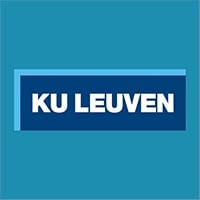Are you interested in the complexity of working memory development? Are you also convinced of the importance of teacher-student relationships in schools? Then contribute to challenging research in primary education on the significance of teacher-student relationships for the development of working memory, and help unravel the underlying mechanisms.
The Faculty of Psychology and Educational Sciences at KU Leuven invites applications for a full-time PhD research position within the research group Parenting and Special Education. The position is part of an internally funded project and will be conducted under the supervision of Prof. Dr. Dieter Baeyens (Parenting and Special Education, KU Leuven), Prof. Dr. Jantine Spilt (School Psychology and Development in Context, KU Leuven), and Dr. Friederike Blume (DIPF | Leibniz Institute for Research and Information in Education, Frankfurt/Main, Germany). The research associate will work closely with a doctoral student who will be writing a scientific dissertation on this study.
Website unit
Project
Working memory (WM) predicts a wide range of outcomes (e.g., academic achievement). Contextual stimulation in the classroom, particularly through high-quality teacher–child relationships (TCRs), has shown promising potential for supporting WM development. However, a comprehensive understanding of the TCR–WM relationship remains limited due to two key reasons: (1) the effects of TCRs on WM are predominantly examined from a single theoretical perspective (e.g., attachment theory); and (2) associations are typically analyzed in terms of between-person level differences, which are assumed to be stable over time, despite evidence of short-term fluctuations at the within-person level.
To address these limitations, we employ an intensive longitudinal design in which Grade 4 children comprehensively report on TCRs and complete WM tasks/ratings during a series of 20-day ambulatory assessments (e.g., daily diary or smartphone-based), flanked by comprehensive pre- and post-tests. This approach aims to investigate: (1) whether aspects of TCRs are stable and/or vary over time; (2) which aspects of TCRs are associated with WM both generally and on a day-to-day basis; (3) whether WM performance at the end of the school year is better predicted by stable or time-varying aspects of TCRs assessed at the beginning of the school year; and (4) which risk factors and agents of change influence this predictive relationship. The project will commence with a systematic review of risk factors influencing the quality of TCRs.
Profile
Key responsibilities of the profile:
• Complete a doctoral dissertation within four years;
• Conduct a systematic literature review on risk factors affecting teacher–child relationships;
• Prepare and run a large-scale intensive, longitudinal data collection in schools (pilot in year 1, cohort 1 in year 2, and cohort 2 in year 3 of the project), this will include recruiting participants, coordinating data collection by the PhD candidate, a research assistant and master thesis students, and performing advanced statistical analyses on the collected data;
• Publish findings in international peer-reviewed journals;
• Present results at national and international scientific and practitioner conferences;
• Adhere to the principles of research integrity and open science.
Required qualifications include:
• A Master’s degree in Psychology or Educational Sciences obtained by July 2025;
• At least two “honours” distinctions (e.g., cum laude) during the academic career (students expecting to meet this requirement upon graduation are also encouraged to apply);
• Demonstrated interest in educational research, school psychology, or clinically relevant child research;
• Sound knowledge of statistics and a willingness to acquire advanced statistical skills as needed;
• Excellent organizational and planning skills to manage complex data collection across schools;
• Strong ability to work independently—demonstrating initiative, critical thinking, and self-organisation—while also contributing actively and constructively to a team-oriented research environment;
• Proficiency in Dutch (both spoken and written), essential for testing Dutch-speaking children and liaising with schools and educators;
• Affinity for working with children and engaging with their social contexts (e.g., teachers, parents);
• Proficiency in academic writing and oral communication in both Dutch and English.
Offer
The job offer involves a full-time position for 1 year, after positive evaluation a maximum of 3 more years can be added. The candidate is expected to prepare a PhD within these 4 years.
We offer a dynamic, international, stimulating and supportive research environment. The project is a collaboration between supervisors at KU Leuven (prof. dr. Dieter Baeyens and prof. dr. Jantine Spilt) and DIPF | Leibniz Institute for Research and Information in Education (dr. Friederike Blume).
Your workplace is located at KU Leuven, campus Leuven (with the option of working parttime from home). Besides the salary, KU Leuven offers some additional advantages, such as hospitalization insurance, reimbursement for commuting by public transport, a KU Leuven bicycle, eco-vouchers, working from home, etc.
Interested?
For more information please contact Prof. dr. Dieter Baeyens, tel.: +32 16 32 60 68, mail: [email protected] or Prof. dr. Jantine Spilt, tel.: +32 16 37 30 91, mail: [email protected].
KU Leuven strives for an inclusive, respectful and socially safe environment. We embrace diversity among individuals and groups as an asset. Open dialogue and differences in perspective are essential for an ambitious research and educational environment. In our commitment to equal opportunity, we recognize the consequences of historical inequalities. We do not accept any form of discrimination based on, but not limited to, gender identity and expression, sexual orientation, age, ethnic or national background, skin colour, religious and philosophical diversity, neurodivergence, employment disability, health, or socioeconomic status. For questions about accessibility or support offered, we are happy to assist you at this email address.



 KU Leuven
KU Leuven